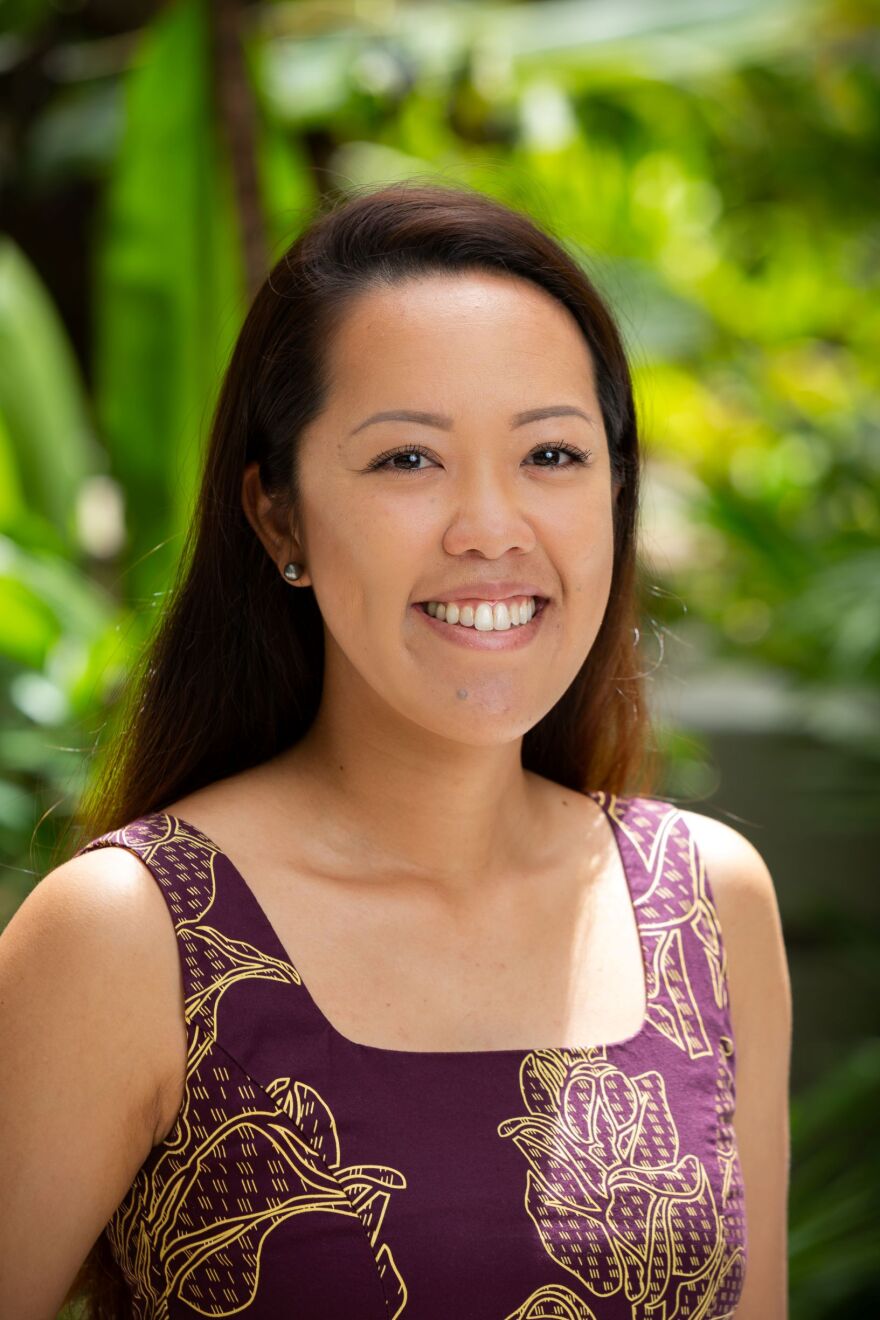Many Thanksgiving dinners across Hawaiʻi will include produce grown here in the islands. Hawaiʻi's legacy of farming and aloha ʻāina are at the core of an album featuring some of Hawaiʻiʻs finest young musicians.
The collection puts recent struggles over land and water rights, to music.
Uʻilani Tanigawa Lum, no relation, is a Post-J.D. Legal Fellow at Ka Huli Ao Center for Excellence in Native Hawaiian Law. As a student at the University of Hawaiʻi’s Richardson School of Law, Tanigawa Lum and other students helped taro farmers on Kauaʻi organize the Waiʻoli Valley Taro Hui — a nonprofit group that produces most of the state’s locally-grown taro.

In 2019, the UH law students took a site visit to Kauaʻi to discuss organizational principles toward establishing the hui’s nonprofit status.
"After our first day of a site visit, I was so inspired. That night as I was taking a shower, these words just came to me. I'm in no way a talented haku mele composer, but it was just so moving. That these words just came to me really quickly, within my shower, the song was pau," Tanigawa Lum said. "So that's really the first line. Aia I Waioli ke aloha ʻāina, there at Waiʻoli is aloha ʻāina."
The song, "Aia I Waioli ke Aloha 'Aina," sung by Kainani Kahaunaele, is a record of Tanigawa Lum's experience with the taro farmers. Their commitment to traditional loʻi kalo or taro cultivation is preserving land, culture, and a lifestyle on Kauaʻi.
"What was so inspiring to me was they see the importance of it, they put their head down and they continue for generations. As a third year law student, sort of looking into my future legal career, this hard work and understated work ethic that they continue for generations--thatʻs something that really hit home for me," Tanigawa Lum said.
Tanigawa Lum says the song is now a snapshot of the place, the people, and the cause.
"And it helps me remember. That's the cool part about mele and its utility in our everyday life."
The Huliamahi CD features various contemporary musicians documenting stories like this one, about establishing a sustainable future for Waiʻoli valley taro.
"Huliamahi means to act in unison or in great numbers. So this CD is a collection of those success stories specifically as it pertains to the rule of law. What's cool is that mele as a cultural practice, encapsulates these stories, these community wins, if you will, in mele form," she said. "Hopefully, as these mele are sung, they become acts of aloha ʻāina, remembering our relationship to land."
The Huliamahi collection is on Apple Music and other platforms. Proceeds benefit the Native Hawaiian Legal Corporation.
Kāhuli Leo Leʻa, the nonprofit that sponsored Huliamahi, will release another project this Sunday. Celebrating Prince Jonah Kūhiō Kalanianaʻole’s legacy, of 100 years of the Hawaiian Homes Commission Act. The music and storytelling will air Nov. 28, then Dec. 4 and 6 on local television stations and on Facebook at Kāhuli Leo Leʻa.




